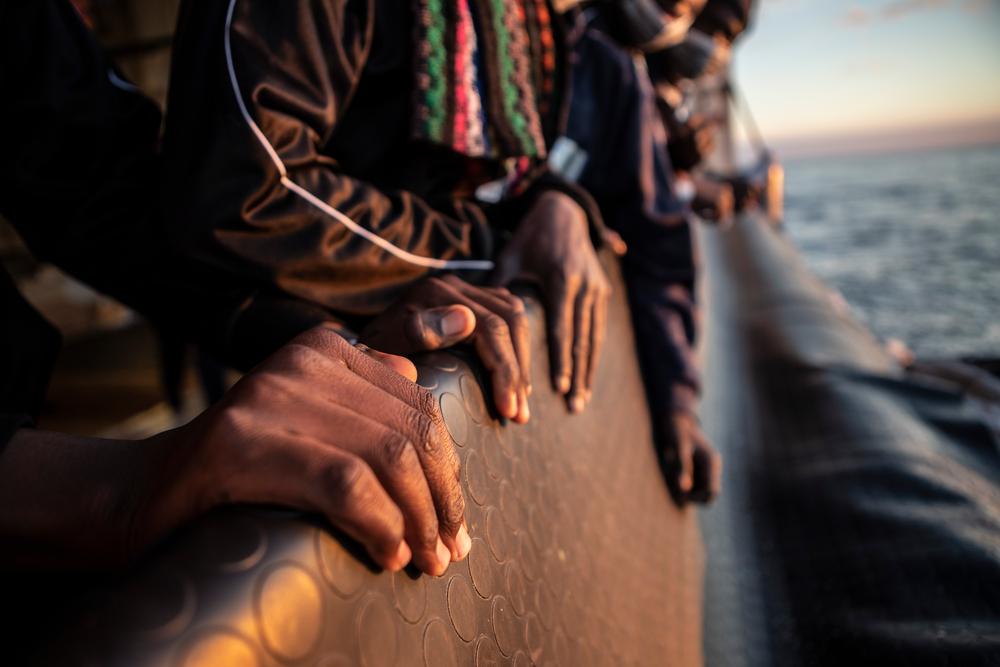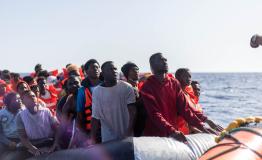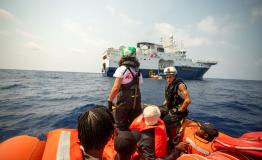Since the so-called 2015 migration ‘crisis’, MSF has consistently called on the EU and its member states to take responsibility in addressing urgent assistance and protection needs for migrants and refugees. However, far from improving, a normalisation of violence against refugees and migrants has taken root, with significant investment from EU institutions in third-party countries such as Niger and Libya, where people are often blocked or forcibly returned to, and faced with inhumane treatment.
“My brother and I came on foot from Afghanistan, and we tried to cross the border between Italy and France to join our family in Germany. On the mountain path at night the police started chasing us, and while trying to escape we fell down a ravine ... we lost everything we had. We had to cross Türkiye, Greece and the Balkans to get to a place where we felt safe. We didn't think we would have to keep running even after we arrived in Europe.” These are the words of a Médecins Sans Frontières (MSF) patient from the project in Ventimiglia, Italy, describing the consequences he faced as a result of the policy-made crisis that has been unfolding across Europe and at its borders in recent years.
MSF medical and humanitarian teams have been treating the devastating consequences of restrictive migration policies and practices and have seen their human cost first-hand. We have responded in places like Libya, the Balkans, the Central Mediterranean Sea, Poland, Greece and Italy, which have become laboratories and testing grounds for increasingly harmful policies and practices. What we have seen and been told between August 2021 and September 2023 has been brought together in the report Death, Despair and Destitution: The human costs of the EU's migration policies.
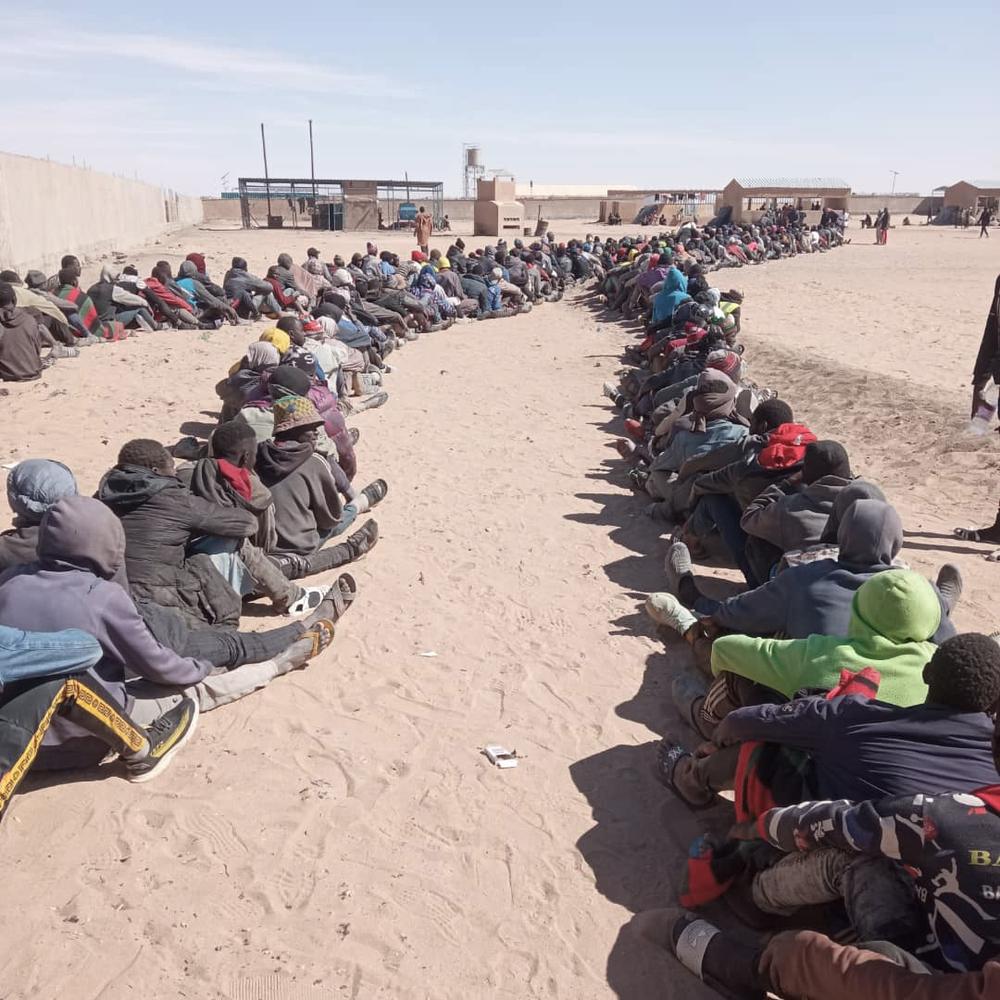
Intercepted and trapped
People seeking safety are often violently trapped in non-EU countries that have EU migration cooperation agreements, without access to healthcare and protection. There remain for example serious concerns around the conduct of the Libyan coastguard during interceptions at sea, which, in some instances, has endangered the lives of people in distress. Violence during interceptions was regularly reported to MSF by patients in Libya and on the Geo Barents search and rescue vessel.
From 2016 to 2021, the number of people attempting to leave Libya by boat and being forcibly returned to the country surged following the disengagement of the EU and its member states from search and rescue operations and the declaration of a Libyan Search and Rescue Region (SRR) in 2017. The EU invested over €70 million in Libya’s border management capacity.
“I took to sea with 83 people, on a white inflatable boat. One woman was pregnant. At 7:30 in the evening, we saw the Libyans behind us. They came next to us, and they said, ‘Stop, or we will shoot.’ We said no, we cannot stop. They circled around us as we tried to escape. The captain refused to stop. They shot at the boat to deflate it. Water came inside. Then we did not have a choice. They threw a rope and stayed above us, shouting and insulting us. We helped the women onto the Libyan boat. We had to climb quickly. The water was coming into the boat, and it was going lower under the water. Two brothers, a Malian and a Guinean, drowned like this.” An 18-year-old man from Cameroon, rescued by MSF in the Mediterranean Sea in 2022.
Upon return to Libya, people are often directly transferred to detention facilities. Migrants and refugees in Libya are detained arbitrarily and held in unregulated detention centres, where there is no guaranteed access to healthcare. Between January 2022 and July 2023, MSF provided 23,769 primary healthcare consultations in eight detention centres in western Libya. MSF teams saw extremely vulnerable individuals, including unaccompanied children, people with physical disabilities or chronic illnesses, and survivors of human trafficking and torture.
The number of people intercepted by the Tunisian coastguard has also increased in recent years. In addition to being intercepted at sea and forcibly returned to Tunisia, people have also been intercepted and further expelled to neighbouring Libya and Algeria. In Niger, MSF teams have supported people expelled from Tunisia to Algeria and pushed into the Nigerien desert.
Blocked at EU borders
Despite efforts to contain people in non-EU countries, they continue to make sea and land crossings in search of safety and protection. At EU sea and land borders, however, they are met with razor-wire fences and brutal physical violence, rather than rescue and assistance. EU border walls and fences currently stretch over 2,000 kilometres.
MSF patients report being subjected to repeated pushbacks along their journey. These incidents are usually accompanied by physical assault, detention, verbal humiliation including racial slurs and derogatory language, and other degrading forms of treatment. These acts are mostly carried out by state actors. The practice of repeated pushbacks in countries such as Poland, Greece and Hungary has exposed individuals in need to unacceptable levels of risk to their health and well-being.
“Because I was sick, I was in hospital for three days. I asked for protection but in the end, they gave me back to Belarus without anything, just alone. And I didn’t know how to find my way but I met people on the road […] I told the doctor, I want to stay here, I am seeking asylum, but he said to me, ‘Honestly, I don’t know what is going to happen to you’, and the border guards came to the hospital, and they put me in prison for three hours. And after that, I went back to the border.” MSF patient in Belarus, 2023
In addition to the risk of injury posed by the wall between Belarus and Poland, MSF has witnessed how people become trapped in the area between the two borders – referred to as the ‘death zone’ by patients – for protracted periods, exposed to harsh weather and violence, which exacerbates existing physical and mental health problems.
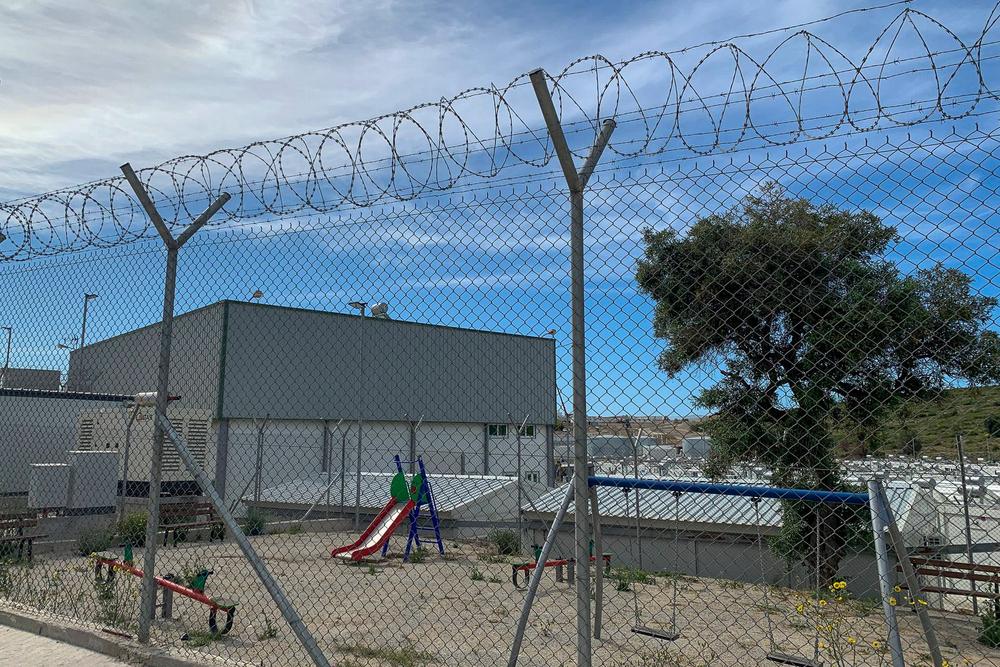
“Everyone is suffering from a basic level of psychological distress, even young people. Always with the same symptomology: body pains, dissociation, depression, sleep disorders. People feel alone. They feel humiliated living under these conditions.”MSF psychologist on Lesbos
Punished and contained
The ‘hotspot’ model which was established in Greece and Italy to contain and quickly identify people arriving at borders, implement rapid border procedures, and facilitate returns has long been a cornerstone of EU migration management. Over the years, the hotspots have been characterised by an ongoing state of crisis and human suffering, with constant shortcomings in terms of protection and access to essential services such as water, healthcare and safe reception. Nevertheless, the EU and national governments have doubled down on this approach.
“Everyone is suffering from a basic level of psychological distress, even young people. Always with the same symptomology: body pains, dissociation, depression, sleep disorders. People feel alone. They feel humiliated living under these conditions.” MSF psychologist on Lesbos.
Between August 2021 and August 2023, MSF teams on Samos provided 2,900 mental health consultations, during which 34 per cent of patients reported having experienced trauma symptoms, while 28 per cent showed anxiety-related symptoms. Depressive disorders, post-traumatic stress and anxiety disorders were prevalent in all population groups, even among children. Daily stressors such as poor living conditions, complicated administrative procedures, fear of deportation and exposure to insecurity are major factors impacting people’s mental health.
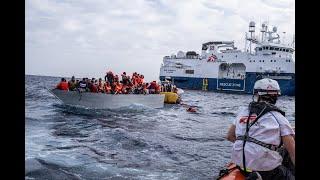
Aboard the MSF Geo Barents
Systemic neglect, exclusion and destitution
Across the EU, people – both adults and children – are increasingly excluded from reception and protection systems and forced to live in precarious conditions. States such as Belgium, France and the Netherlands have implemented increasingly hostile reception policies to deter so-called secondary movements. An example of this is the fact that the Belgium Secretary of State for Asylum and Migration and Belgium’s reception agency, Fedasil, have been condemned over 8,000 times by national courts and more than 2,000 times by the European Court of Human Rights for failing to provide shelter.
"Every day, the police confiscate the blankets and tents provided for us by the volunteer organisations. I slept in the rain, in the cold. We tried to keep warm by lighting a fire, but the police came to put it out with fire extinguishers and threw water on us.” MSF patient in Calais, 2023.
Furthermore, European states, in particular France, Belgium and the UK, are increasingly using age assessments as an additional way to deny access to protective status to people seeking safety and other specific protections accorded to children travelling alone. In France, MSF assists unaccompanied minors not recognised as such during their age assessment. Hostile policies add a significant stress factor, depriving minors of protection, administrative status and legal representation. When they arrive in France, many of them remain outside the protection system or have to wait many months before they can benefit from social services and protection. Without any access to accommodation, they face precarity, isolation and homelessness. These unsafe living conditions leave them vulnerable to the additional health risks of poor nutrition, cold weather, violence, sexual exploitation, trafficking and addiction. Around 15 per cent of unaccompanied children receiving MSF mental health support in Paris who reported having experienced violence said that it had happened in France.
For years, MSF has been ringing the alarm about the human cost of European migration policies, having issued countless reports, press releases and letters proposing recommendations to guarantee the protection, assistance and access to timely and quality care for people trying to reach Europe. Despite this, opportunities for meaningful change have been squandered, further embedding a web of violent practices at the heart of EU migration policy. The EU must urgently confront the issues that lie at the root of this violence, and this requires an urgent and fundamental change of course. A normalization of violence will not deter people from coming but it will lead to unnecessary suffering and death.
“Go back to Syria? I can’t go back to Syria. That’s it. There is no going back. I keep going. I tried for five months to leave … I cannot describe Libya to you. If I live, take the next 10 years, I will not finish describing what I have seen in Libya.” Man from Syria rescued by the Geo Barents SAR vessel in 2023.
